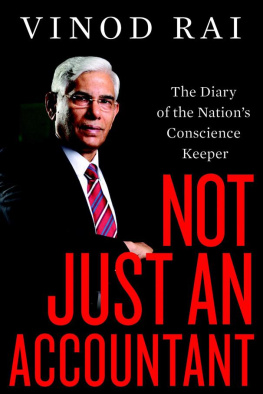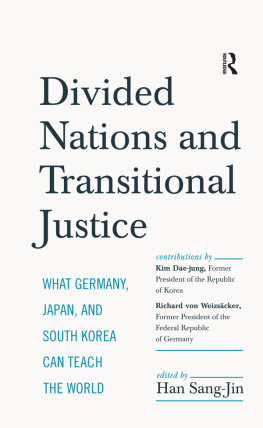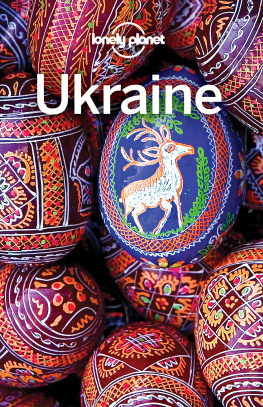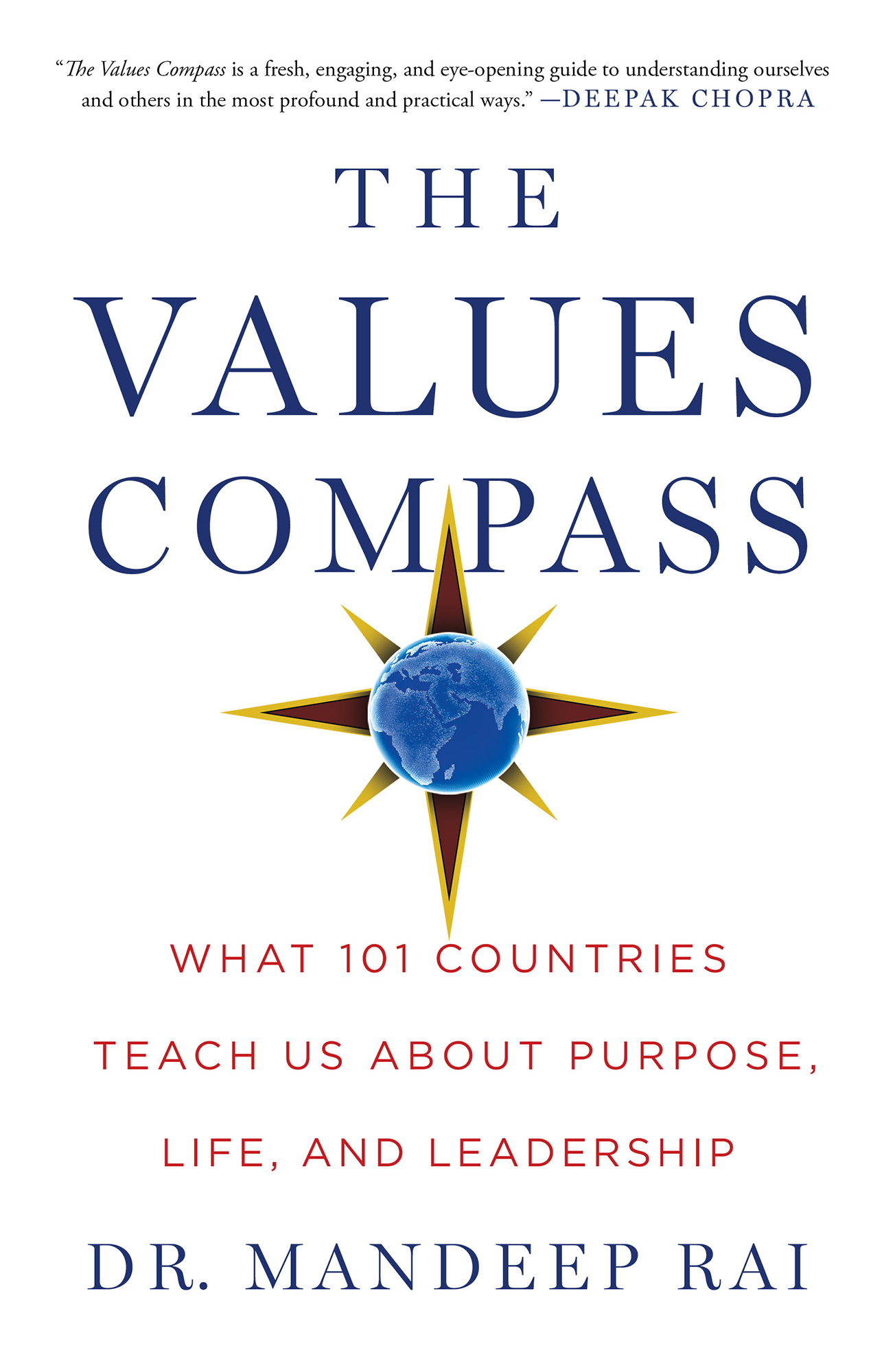Contents
Guide

Simon & Schuster
1230 Avenue of the Americas
New York, NY 10020
www.SimonandSchuster.com
Copyright 2020 by Mandeep Rai
All rights reserved, including the right to reproduce this book or portions thereof in any form whatsoever. For information, address Simon & Schuster Subsidiary Rights Department, 1230 Avenue of the Americas, New York, NY 10020.
First Simon & Schuster hardcover edition January 2020
SIMON & SCHUSTER and colophon are registered trademarks of Simon & Schuster, Inc.
For information about special discounts for bulk purchases, please contact Simon & Schuster Special Sales at 1-866-506-1949 or .
The Simon & Schuster Speakers Bureau can bring authors to your live event. For more information or to book an event contact the Simon & Schuster Speakers Bureau at 1-866-248-3049 or visit our website at www.simonspeakers.com.
Interior design by Silverglass
Jacket design by Tom Mckeveny
Jacket art: Globe by Enot-Poloskun; Compass by Ggodby/Getty Images
All images courtesy of author, except for image of India by Raghu Rai, and image of the Democratic Republic of the Congo by Angela Fisher and Carol Beckwith.
Library of Congress Cataloging-in-Publication Data has been applied for.
ISBN 978-1-5011-8338-6
ISBN 978-1-5011-8340-9 (ebook)
For my beloved children ~ Naryan and Saiyan May you, and all children, be rooted by your values and thus have everlasting wind beneath your wings.
You are the source of all values and virtues and it is with your grace that they are bestowed.
Ang 4 of the Sri Guru Granth Sahib Ji, by Guru Nanak Dev Ji
Your beliefs become your thoughts,
Your thoughts become your words,
Your words become your actions,
Your actions become your habits,
Your habits become your values,
Your values become your destiny.
M AHATMA G ANDHI
Introduction
Leading with Your Values
Who will want to marry you if you go there?
The moment the word Oxford passed my lips, my mother was immediately and implacably on the warpath. It was from there I had just returned, after an unsanctioned trip in my parents car for an interview at the university.
Many parents might have expressed support or encouragement, or even pride. But not my mother. To her, a name like Oxford epitomized the British ruling class: the people who had changed her native India so much during the Raj, and were ultimately responsible for her ending up in a place where she was alienated, alone, and the frequent victim of violent racial abuse. She envisioned losing me, her best and only friend in our village, to a place where I would become exposed to drugs, and end up marrying an upper-class white boy called Sebastian.
Marriage. At eighteen, it felt like a cage to be avoided as long as possible: the end of freedom and happiness. Then as now, what I valued most was the power to set the course of my own life, not to be constrained by the expectations of others. For my mother, nothing was more important than that I be married off in the right time and to the right kind of boy: a Sikh, preferably from Punjab, with the appropriate creed, background, and parentage. Both of us feared most what the other desperately wanted. It was the first time in my life I really understood the importance of values. For her, family and heritage held sway. I was moved by the desire for freedom, exploration, and a thirst for knowledge. We both wanted the best for me, but we couldnt agree on what that was. Our starting points and basic assumptions had become irreconcilable. Our values were in conflict.
All of us will have moments like this in our life, where the choices, challenges, or opportunities facing us reveal something important about our character, desires, and personality. A decision about whether to prioritize professional aims or family needs; to pursue the best-paid job or the most meaningful; to do the things we want, or those that support our health and well-being. We face big, defining decisions, but also a constant drumbeat of choices about how to spend our time. Every day we are making decisions that set both the short- and long-term course of our lives. Whether we acknowledge it or not, these decisions are being steered by the principles we believe in and consider to be most important: values that are working away in our subconscious.
Many of us constantly question how to be our best selves, and live the most fulfilling version of our lives. Those conundrums are hard to answer without an appreciation of values. You need to understand your own values and those that are held dear by your core people, the company you work in and the community you live in. Values hold the key to so many of the things we aspire to. Quite simply, they are the foundation of our entire lives: the lasting and fundamental beliefs we hold and act against, however our circumstances change. Everything elsethe decisions we make, the ambitions we nurture, the relationships we buildis simply a representation and amplification of our fundamental values. Our values are running our lives, yet not enough of us understand what they are, their power, and how we can use them. The more we know and understand them, the more clarity we have over what matters to us, and the more confidence we gain in making decisions toward that end. We need to know our values to better understand ourselves and what motivates us. And we need to appreciate the values of the people in our lives, to see the world through their eyes and help us to build sustainable and harmonious relationships.
Values represent the aggregation of our life experiences, personal aspirations, family inheritance, and cultural grounding. They determine the career, the partner, the lifestyle, and the goals that we all choose. And they set the limits on what we believe to be acceptable, fair, and just. We all have a fundamental personal code that we carry through life, and its language is values. A value is something that affects how we see the world, and also what we see. If you have been a victim of racism or social injustice, it is likely that equality and fairness will be important values to you, and that you are more likely to see injustice in the world than someone who has not. My own childhood experience in the Gloucestershire village of Churchdown, where my home was petrol-bombed, my nose broken so other children could see if I would bleed red or brown, and my parents would only leave the house with one of them in the trunk of the car (to avoid people seeing the house was unoccupied), has certainly left an indelible mark on me. We all have unconscious programming like this, based on our life circumstances and experiences. We need to be aware of this so that, rather than letting it guide our lives, we equip ourselves to choose powerfully. This is what an understanding of values helps us to achieve.
That moment with my mother was when I started to understand the importance of values as our personal bottom line. In the decades since, my understanding of how values define us as people, framing the direction we choose for our lives, has grown. And I have developed a clear understanding of why it is so important to both understand and reflect on your values. I believe there are five reasons:
- They help us to understand ourselves, the beliefs that animate us as people, and the motivation that drives our personal aspirations.














